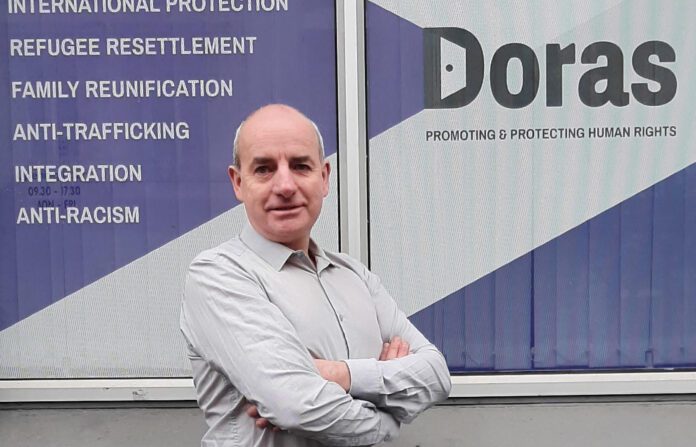
FINDING worms and maggots in food, rooms that stink of urine, and single rooms shared between 10 people for extended periods are among the experiences reported to a Limerick migrant and refugee support organisation by Ukranian people living here.
Doras, headquartered in Limerick, launched a new report this week on the experiences of Ukrainians living in State-provided accommodation under the Temporary Protection Directive. The report is titled ‘Room to Improve: A Look at the Experiences of Beneficiaries of Temporary Protection in State Accommodation‘ and makes for stark reading.
In a survey with almost 1,000 responses, a range of factors were identified by Doras as significant. These include type of accommodation, having private bedrooms, type of service provision (serviced or self-catering), staff attitudes and responsiveness, poor facilities for children, and lack of complaints mechanisms.
Among the findings of the report were that one in three people rated the overall quality of their accommodation as very poor or poor, while one in 10 had concerns regarding gender-based violence in their accommodation centre, and one in six had concerns regarding the safety of their children in their accommodation.
60 per cent of those living in serviced accommodation rated the quality of meals provided as very poor or poor. Undercooked or rotten food was reported in two centres. Worms and maggots were reported in food in one centre, and cases of food poisoning were reported in three.
The presence of rats or mice was reported in six centres and 43 accommodation centres had no transport links to speak of.
In quotes extracted from the survey, respondents spoke of “complete unsanitary conditions, the stench of urine in the rooms on the ground floor, mould, and wet beds”.
“Staff says: If you are not happy, go back to Ukraine,” another said.
“Children are constantly sick, I am not sure about the sanitary condition of the hotel and the food provided.”
“I live with nine other men in single room.”
Doras CEO John Lannon said the organisation has “been working on the ground with people living in Direct Provision for the past 20 years, so we have seen how institutionalised living can negatively affect the mental and physical health of adults and children”.
“Our new research on the experiences of Ukrainians living in State-provided accommodation paints a worrying, but not surprising, picture,” he hit out.
“While a significant portion of those surveyed were very happy with their living conditions, we can see from the findings that the quality of service provision varies greatly from centre to centre.”
Mr Lannon said that ‘it’s important to also note that some providers are doing a very good job, and this is reflected in the survey. There’s also a lot of gratitude and appreciation towards Irish people.”
“We are calling on the Department for Children, Equality, Disability, Integration, and Youth to urgently implement three main actions: mandatory compliance with the Children First Act 2015 to safeguard children; mandatory Garda vetting for all staff working in accommodation centres; and compulsory training to all staff in those centres on trauma-informed practice and intercultural awareness.”









